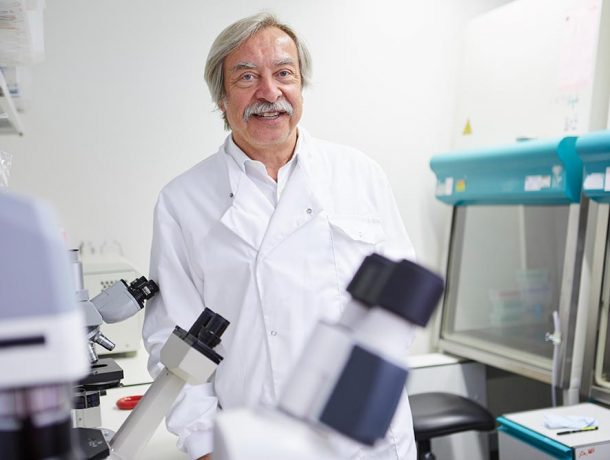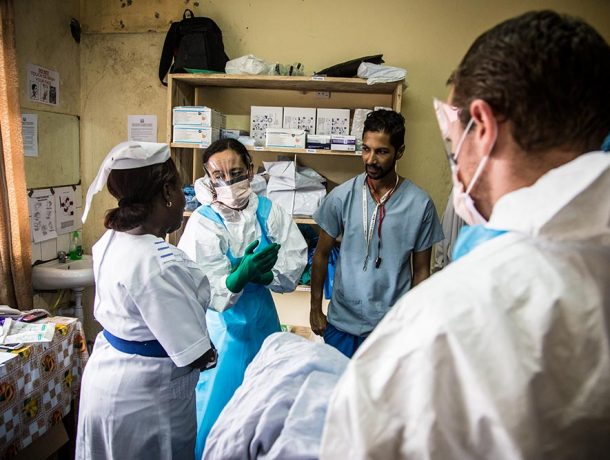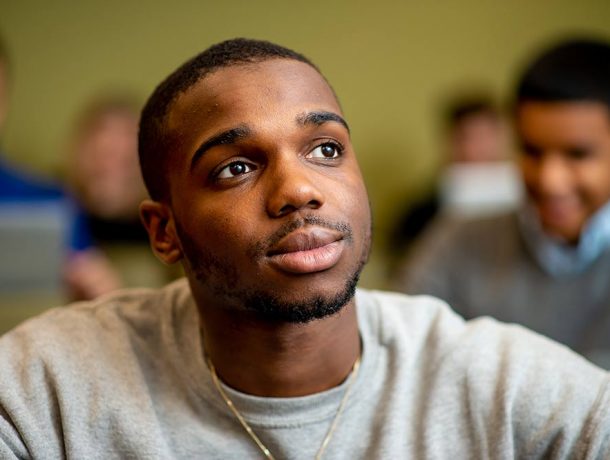Support King’s COVID-19 Response Fund
At King’s we are committed to using our expertise and resources in support of the international response to COVID-19 during one of the most challenging times we have collectively faced.
Find out more:

Crucial, frontline support
Working in the heart of London, the UK epicentre of the COVID-19 epidemic, King’s and its health partners play an important role in providing crucial, frontline support to the national and global response.
From expert research into prevention and treatment, supporting the mental health of our NHS colleagues and responding to the growing need in developing countries, to ensuring the wellbeing of our students is cared for at this vital time, we are directing our world-leading areas of expertise towards combatting the impact of the virus.
King’s was built on an ambition to serve society and that commitment is stronger than ever at this time of global challenge. This is why we have launched the King’s COVID-19 Response Fund, providing crucial support to these four keys areas of work.

Research
To manage the current epidemic effectively, doctors need to be able to identify patients who are most likely to need intensive care. COVID-IP is a fast-response study of immune responses in COVID-19 patients admitted at St Thomas’ Hospital. Despite treatment, a significant proportion may deteriorate within about a week, requiring breathing support on the ICU. Although age and underlying conditions are risk factors, they are not reliable predictors.
We believe that discriminating signatures may exist in patients’ immune systems, causing a tissue-damaging ‘cytokine storm’ – an overreaction of the body’s immune system that can lead to fatal inflammation. By identifying these signatures, we learn more about the disease and can focus energies and resources on those in most acute need.
COVID-IP will build on existing, internationally recognised expertise to monitor patients’ immune responses throughout their first few days in hospital, allowing us to act fast and create immediate impact.
Your support will increase the number of patients we can test, helping us identify those at risk more quickly.
Photo credit: Francis Crick Institute, Janie Airey

Mental health
As the NHS fronts the nation’s battle against the COVID-19 pandemic, our health workers have never been pushed harder. Many NHS staff will have to make difficult choices they have never faced before, deliver care that might not meet the high standard they expect from themselves and justify their decisions to patients’ relatives. We know that the psychological distress resulting from these circumstances can lead to mental health difficulties including depression, post traumatic stress disorder and suicidal thoughts.
King’s is a world leader in mental health research. With your help, we will drive research never undertaken before to better understand the factors that influence the mental health difficulties faced by health workers. This will rapidly improve the support we can offer to help them become more resilient in the face of these extraordinary circumstances and beyond.

Global impact
There have been clear warning signs that Africa is just weeks behind Europe in the COVID-19 pandemic and we know that the continent is not equipped to cope with a public health emergency. Developed countries need to act now to help prevent major challenges for the continent’s under-resourced health services and minimise widespread devastation and loss of life.
King’s Global Health Partnerships was at the heart of the international response to the 2014 Ebola epidemic and our world-leading experts stand ready to support marginalised communities across Africa in this current crisis.
As another part of King’s global response, Professor Sturt and her team are in a unique position to rapidly deliver remote training to frontline health workers across East and West Africa. With your support, we will provide life-saving health information and care to marginalised communities, which will have a significant impact on their ability to deal with the COVID-19 crisis.

Student support
In the past month, life on campus has been transformed, with crowded lecture theatres replaced by online classes. For many, this will be a period of great uncertainty and anxiety, made worse by financial concerns.
We have seen a significant increase in applications to the Hardship Fund and anticipate this continuing for the foreseeable future. Many of our students combine their studies with part-time work, and now find themselves unemployed and struggling to pay their bills. Others have been unable to make the move to online learning, as they either don’t own a computer or they live in a home without an internet connection.
In the weeks ahead, we will be working hard to ensure that all of our students are supported and no one is disadvantaged. However, we know we can do more with your support.
Get involved
Please will you join us today? Your support ensures that our academics, researchers and clinicians can continue to play a key role as we work together to overcome this pandemic.